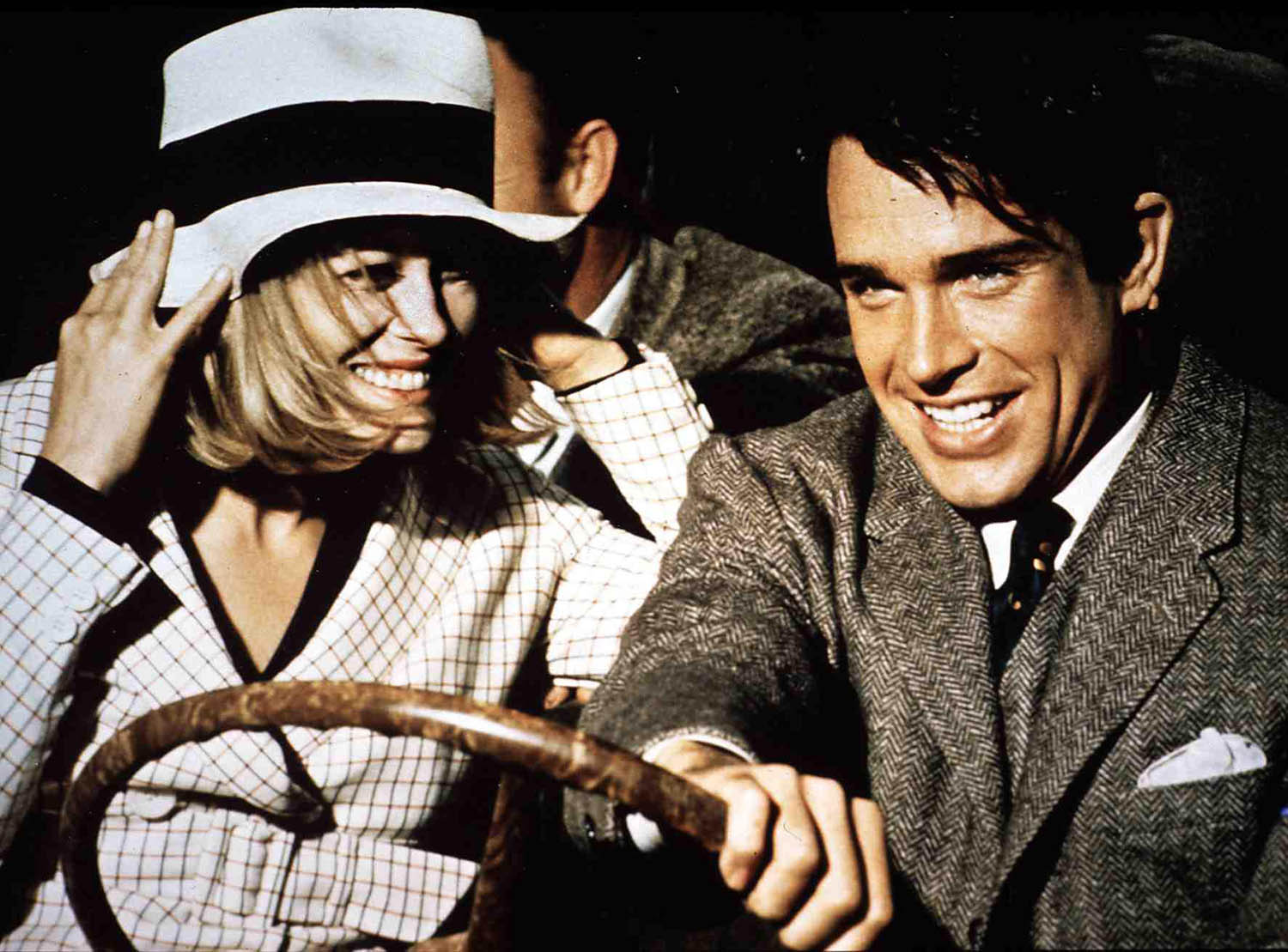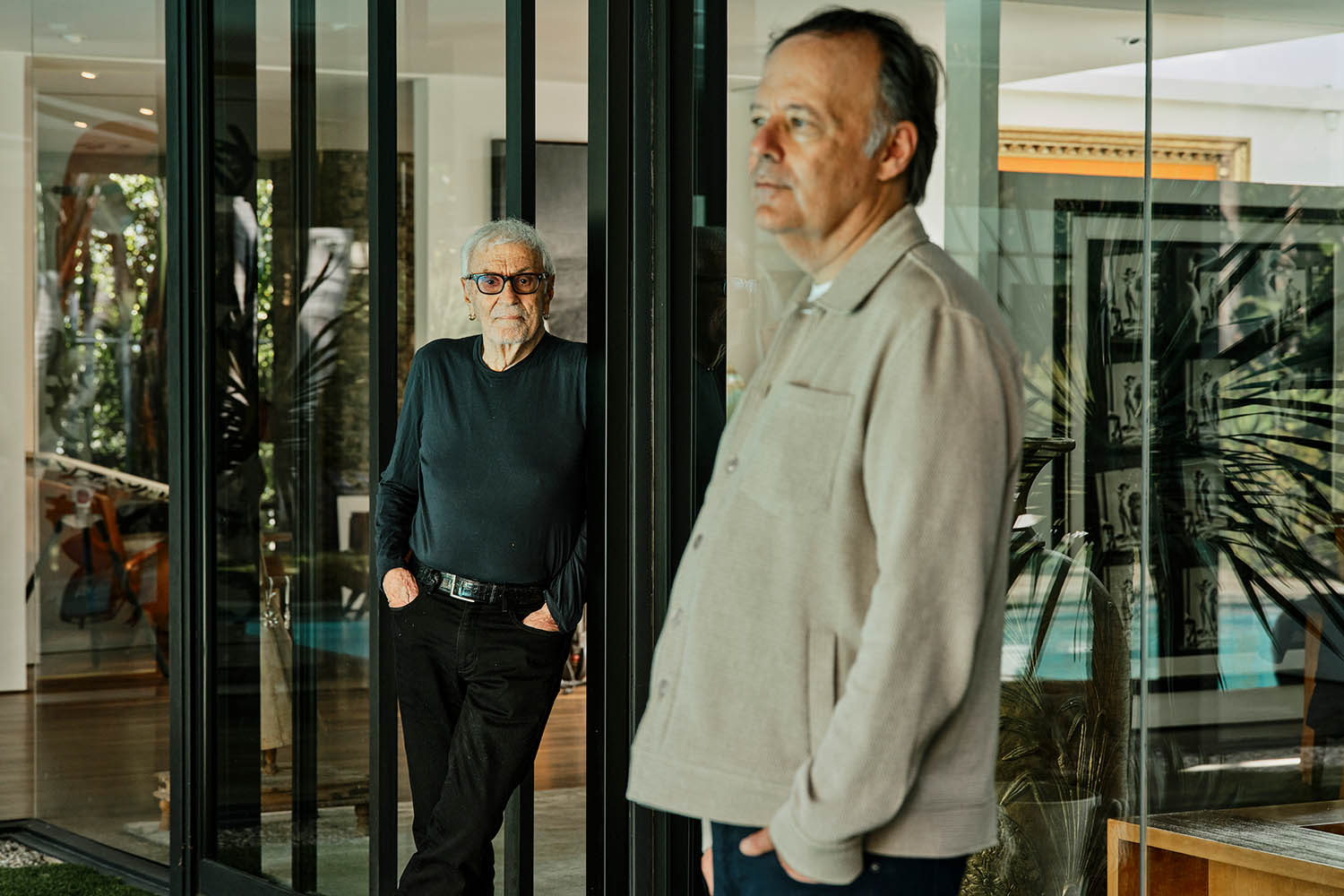The subtitle of this memoir sounds rather baleful, as if it’s going to be about the kind of powerful family whose closeness allows them better opportunity to stab one another in the back: the Corleones, or the Roys, of Tinseltown. The Golden Hour is indeed haunted by betrayal and estrangement, but it’s more rueful than baleful, and death comes not by assassination but from cancer or blood infection or overdose.
Matthew Specktor blurs the lines between fiction and memoir – the one informs the other. His poised, elegiac style first came to my notice with his 2021 book Always Crashing in the Same Car, a superb study of subterranean Hollywood in which the author pursued the ghosts of failed or forgotten talents, among them Tuesday Weld, Carole Eastman, Renata Adler and Michael Cimino. Specktor – well-named – understood the romance of being lost and found (and lost again) in a town that never made it easy for idiosyncratic artists to flourish.
This time he puts his parents under the lens. His father, Fred, started out as a gofer and whipping-boy for the fearsome agent Lew Wasserman before graduating to eminence of his own at CAA. His mother, Katherine, was a folk-loving leftist and model with ambitions to write. The son imagines how his parents met and fell in love, their first date at a cocktail bar serenaded by Sinatra and Strings. “What makes them so perfectly ill-suited for each other?” he asks, presaging the shadows that lie ahead.
Specktor was born in 1966, right on the cusp of a sea change, the old studio system about to give way to the New Hollywood. In a vignette from the same year, Warren Beatty is on his hands and knees, begging studio boss Jack Warner to let him make Bonnie and Clyde, a movie of radical violence that would blast its way into the public consciousness and change the face of the business. Among its many fans are Fred and Katherine Specktor, who will also benefit from the new freedoms the film has enabled. “The movies will tell you who you are”, writes Specktor, especially true for those living inside the fun factory itself. If Bonnie and Clyde is era-defining for his parents, for the son it will be Apocalypse Now and Blue Velvet, whose mood clings to him “like flaming chemicals”. He also happens to have intimate connections with both – Martin Sheen, star of the first, was a family friend, and Laura Dern, star of the latter, was his childhood playmate. Movies couldn’t be more personal for him.
He doesn’t soft-pedal his mother’s ‘blackout’ drinking or their 10-year estrangement
He doesn’t soft-pedal his mother’s ‘blackout’ drinking or their 10-year estrangement
As a writer Specktor is comprehensively a cut above, his prose an exquisite amalgam of Scott Fitzgerald and David Thomson – the lyrical challenged by the critical. He is as good on the west-coast weather (“the sky an opalescent orange above the grassy pavilions”) as he is on the talent agent’s credo (“Stay out of the spotlight, it fades your suit”), only occasionally overegging the mix: I’m not sure what you do with a “lurching pocket of silence”. Pick it? The Golden Hour is absorbing, but it’s not brilliant and compelling in the way Always Crashing… is. Why? It’s partly to do with authorial distance; while Specktor far from idealises his parents he doesn’t write about them with the beady forensic sharpness he brought to the misfits and oddballs that peopled the earlier book. Yes, he sees clearly how success coarsened his father’s character, the way he became hectoring to his son, became brusque with waiters and colleagues. He doesn’t soft-pedal his mother’s “blackout” drinking and her misery, or their 10-year estrangement. Nor does he spare himself as a showbiz kid, riding a wave of “nepotism and luck”, spaced out on “ludes” aged 10, wired on cocaine at 14 – later catapulted into a job at Miramax in its literary acquisitions department.

Something else lets out the book’s tyres. Agenting just isn’t that fascinating to outsiders, not in the way writing or acting or film-making can be. In Hollywood it’s merely a high-numbers version of a meat market. Come to think of it, is any profession with “agent” in the title – talent, advertising, estate – likely to set the pulse racing? (Only one: secret agent.) Specktor proves the point himself when he quits his studio job to go it alone as a screenwriter, swapping the atmosphere of corporate enterprise for the grind of personal satisfaction. It re-energises the last section of the book, for something now feels at stake. He becomes obsessed with the Australian writer Shirley Hazzard’s 1980 novel The Transit of Venus, a gift from his mother. The book is a one-off, magnificent but maddeningly complicated: he decides it must be a film. He corresponds with Hazzard, somehow acquires the rights, and enters the dread labyrinth of adapting, pitching, waiting. Cut to five years later and his script has been optioned, but the actors and directors change, “keep jumping on and off the project like children mobbing a playground carousel”. It will join the phantom company of movies that never get made.
So at last he knows first-hand the thwartedness of his mother, a screenwriter who was ostracised as a scab, “both a wonderful parent and a terrible Medean nightmare”. His father, on the other hand, is still going strong into his 90s, with an earring and a younger wife. Is this meant to illustrate a larger truth about art and commerce? Best to play safe as an agent rather than have the life strangled out of you as an artist? Specktor is too wise to cast the problem in binary terms. After all, he suspects even his father never got quite what he wanted, which was recognition – “what everybody wants, in some way: to be seen, to be thanked, to be valued”. The movies will show you who you are.
The Golden Hour: A Story of Family and Power in Hollywood by Matthew Specktor is published by Ecco (£28). Order The Golden Hour at observershop.co.uk for a special 20% launch offer. Delivery charges may apply
Photographs by Philip Cheung for The Washington Post via Getty Images, FilmPublicityArchive/United Archives via Getty Images
Newsletters
Choose the newsletters you want to receive
View more
For information about how The Observer protects your data, read our Privacy Policy

